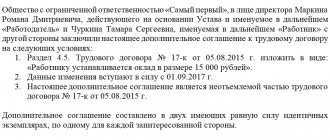What is MSW?
Municipal solid waste (hereinafter referred to as MSW) is the products of human activity, the functioning of enterprises, and household fragments. These include:
- Food;
- plant materials and components;
- sewer accumulations;
- household chemicals;
- garbage, packaging, paper;
- construction waste;
- scrap;
- Appliances;
- other garbage.
A complete list of what is classified as MSW is contained in the unified classifier of solid waste - this is a regulatory document of federal significance, enshrined in the Federal Law of the Russian Federation No. 89.
Decoding MSW in an electricity receipt: what is the difference from garbage collection?
For those who pay for this service, there is practically no difference. The only difference is in the organization that undertakes this service. Until recently, all household waste was disposed of in landfills - these powers were assigned to municipal institutions.
Since 2021, a company has appeared that has become responsible for waste removal. This is a regional operator. His competence includes:
- waste disposal;
- sorting;
- disinfection;
- treatment;
- waste disposal;
- waste disposal.
A fee is charged for the specified list of works. It appears as a separate line on the paystub. Each specific subject of the federation has its own tariffs for this service.
There is no contract for garbage removal, but a receipt with a debt has arrived
Based on your numerous questions, the Cat-Lawyer is finding out whether it is necessary to pay the receipts of the regional operator for the management of solid waste if there is no agreement with him yet.
People complain that after the appearance of a regional operator for the management of solid waste in the region or republic, receipts for garbage removal began to arrive. An agreement with the operator has not been signed, no one provides MSW management services, garbage is not removed, there is not even a garbage container. But the receipt already shows the debt for the last 2-3 months. Regional operators claim that you are required to pay for the past months. For example, the regional operator of Stavropol writes on his website:
The MSW management service has been provided since January 1, 2021 throughout the entire territory included in the regenerator’s area of activity, despite the absence of a concluded agreement. In this regard, when concluding the contract, the start date for the provision of services will be indicated - 01/01/2018, charges will also be made from this date.
Imagine, no. An agreement for a service for the management of solid waste may be considered concluded even if you do not have a signed agreement. There are 2 options for concluding an agreement:
- Signing the agreement - you submit an application to the operator in person/by mail, they give you 2 copies of the agreement, you sign it, give the copy to the operator. For residents of an apartment building, an agreement with a relocation operator is usually concluded by a homeowners association or management company. In this case, they need to pay and make claims.
- Implicit acts - you do something, after which the contract comes into force even without signatures on paper. There is no specific list of actions in the law. But they must indicate your intention to consume utilities or their actual consumption. For example, you take out the garbage to a container/garbage truck specified by the recycler or pay for the receipt sent for the handling of solid waste.
The housing inspection in Chelyabinsk believes that consumers’ obligation to pay arises from the date of the operator’s official arrival in the region. The Altai Rospotrebnadzor notes: “Before asking for payment for a service, you must conclude an agreement!” In fact, it all depends on the type of contract you have.
- Written agreement - comes into force and is binding on you and the registrar from the date of signing by both of you. From this date, the operator is obliged to provide waste removal services and may require payment for its services, unless the contract specifies a later effective date. Such rules are spelled out in paragraph 148(21) of the Government of the Russian Federation Resolution No. 354 of 05/06/2011.
- Conclusive agreement is recognized as concluded from the date of commencement of the provision of utility services by the registrar. According to paragraph 148(11) for owners of residential buildings, this is the date of emergence of ownership of the house or another date established by law of the Russian Federation. If you acquire ownership of a house after a property manager arrives in the region, you will pay from the date of registration of the property. If you are already the owner at the time of arrival, payment may be required after the region approves tariffs for the service for handling solid waste and enters into an agreement with the reoperator (but no later than 01/01/2019, part 8 of article 23 No. 458-FZ dated 12/29/2019 .2014).
- An agreement with another company is an exception. Those who have a waste removal contract with another company do not pay the waste removal operator while that contract is in effect. There is a nuance: this company must enter into an agreement with the reoperator on its behalf and in your interests.
In fact, everything is very, very confusing. The law is formulated in such a way that virtually any consumer automatically enters into a conclusive agreement with the registrar, that is, he will have to pay from the date of his arrival in the region. It doesn't matter when you actually first took out the trash in his container, or when his garbage truck first appeared on your street. It sounds paradoxical, but it is more profitable to immediately go to the registrar’s office and make a written agreement, which will come into force from the moment of signing.
- There is already a contract for waste removal. Write a complaint to the registrar and demand that accruals for the past months be cancelled. Be sure to attach to your claim copies of the agreement with the other company, receipts for handling MSW and checks for their payment.
- Draft contract with a backdated start date for services. Within 30 days from the date of receipt of copies of the contract, write to the operator a reasoned refusal and draw up a protocol of disagreements. Demand that amendments be made to the draft contract and indicate the actual start date for garbage collection (clause 24, 148(15) of resolution No. 354 of 05/06/2011, clause 8.11 of resolution No. 1156 of November 12, 2016). The operator is obliged to respond to this refusal within 30 days. A nuance: even if a reasoned refusal is sent, the contract with the re-operator will be considered concluded on standard terms (clause 8.15 1156 of the resolution). This also applies to cases where the operator refused to resolve disagreements with you regarding the draft agreement.
- Nobody takes out the garbage. Even in the absence of a written agreement, you have every right to demand that the relocation operator provide waste removal services (clause 148(2) 354 of the resolution). If your contract is already considered concluded, but the MSW management service is not actually provided, write a statement to the operator and request a quality check of the services. You can refer to waste removal standards and, due to their non-compliance, demand a recalculation up to a complete cancellation of the fee for a given month (Appendix 1, paragraphs 148(45), 148(46) 354 of the resolution).
If you cannot reach an agreement with the operator, complain to the prosecutor’s office, Rospotrebnadzor, or the housing inspection. You will most likely have to go to court to resolve all disagreements under the contract and fight off payment for previous months.
All about garbage removal
- I don’t want to overpay for garbage, are there any benefits?
- Garbage from a store on the ground floor of a residential building: how to deal with it?
- Municipal waste: all about the new rules for garbage disposal
Do you want to be the first to read new posts from the Lawyer Cat? Subscribe to my channel on Telegram @kotjurist , Yandex Zen and VKontakte .
photo by jeffreyw, flickr.com, CC BY 2.0
How to pay?
Payment for this service is now charged in a new way. It is tied to the number of people registered in a specific territory. In this case, the formula that is used for calculation is as follows:
cost of MSW + disposal = number of residents x removal and disposal tariffs.
If no one is registered
The current legislation stipulates cases when no one lives in a separate apartment. In this situation, payment will be calculated based on the number of owners of the property.
In case of temporary absence of residents
If no one actually lives in the apartment for some time, the option of recalculating the service is allowed. If the period of absence exceeds five days in a row, the owner has the right to contact the operator with a request for a recalculation. The basis for this is his written statement.
Important! Your absence must be documented. Otherwise, the company may refuse to reduce the payment, and will be legally correct.
Treatment of MSW in receipts - tariffs
The indicator used as a base when calculating the amount of payment for MSW management is determined by regional authorities. Let's figure out how MSW management is calculated and how much you have to pay.
There are two main ways to calculate the payment amount:
- Based on the number of people living in the premises. In this case, the calculation is carried out according to formula 9.1 given in Appendix No. 2 to the Decree of the Government of the Russian Federation “On the provision of ...” dated 05/06/2011 No. 354, which has the following form:
Pu = F × No / 12 × T,
where Pu is the amount of payment for the service;
F – number of residents living in an apartment (house, room);
But – waste accumulation standard;
T – tariff size set by the regional operator.
2. Based on the area of the living space. In this case, formula 9.2 from Appendix No. 2 to Resolution No. 354 is used for calculation, which has the following form:
Pu = Pp × No / 12 × T,
where Pp is the area of living space.
Some subjects of the Federation use the first method of calculation, others use the second. On average, the amount is about 100 rubles. per person, but specific indicators in regions sometimes vary greatly, which caused a wave of indignation among citizens at the beginning of 2021.
The size of the tariff established by the regional operator may vary depending on the category of consumers (citizens or organizations), and may also be adjusted over time. The basis for the application of a certain payment procedure, as well as the establishment and change of tariffs, are orders issued by regional ministries of tariff policy. In addition, regions independently determine the standard for the accumulation of waste to be disposed of.
Payment for MSW if no one is registered
The provisions of paragraph 148(36) of the Decree of the Government of the Russian Federation “On the provision of…” dated 05/06/2011 No. 354 establish that if no one lives in the apartment (house, room), then the calculation of the amount of the mandatory payment is based on the number of homeowners.
IMPORTANT! It will not be possible to evade the obligation to pay for MSW management services on the basis that residents are not registered (permanently or temporarily) at their place of residence. According to paragraph 148(35) of the same resolution, the regional operator who collects and disposes of waste can draw up an act containing information about the number of persons actually living in the premises. Based on this document, he has the right to charge a monthly fee for the service for handling solid waste and include it in the payment receipt submitted to the owner of the property.
Recalculation in case of temporary absence of tenants
Recalculation for MSW in the temporary absence of residents is possible. According to paragraph 148(44) of Resolution No. 354, a consumer who has been absent from a residential premises for 5 or more days in a row has the right to contact the regional operator with an application to recalculate the amount of payment charged to him for the removal and disposal of MSW. The procedure for such recalculation is determined by Section VIII of the Rules established by the same resolution.
The basis for recalculation is a written application from the consumer (clause 91 of Resolution No. 354). It must be accompanied by documents confirming the fact of absence from housing for a certain period of time (tickets, vouchers, a copy of the travel certificate, an extract from the hospital patient’s card, etc. - a complete list of them is given in paragraph 93 of the resolution).
In the absence of such documents, the regional operator has the right to refuse the applicant's recalculation and continue the calculation and accrual of mandatory payments in the general manner. If the consumer does not pay the invoices within the specified time frame, the operator may apply penalties and accrue penalties provided for by housing legislation (paragraph 3, paragraph 91 of Resolution No. 354).
If the application for recalculation is submitted before the start of the trip, the operator applies the benefit within 5 days from the date of its receipt. In this case, the new amount will be reflected in the current payment documents.
If the application is submitted by the resident after arrival, the recalculation is made within 30 days from the end of the trip (paragraph 1, paragraph 91 of Resolution No. 354). In this case, payments generated during the absence of residents will contain a standard calculation, and the results of the subsequent recalculation will be reflected in the first document generated after receiving the application (clause 97 of Resolution No. 354).
How are things going in the regions?
In most regions of the country, tariffs were adopted and the regional operator was determined immediately before the reform was put into effect. Legislatively, the rights and powers of local structures are quite broad - they have the right to independently develop an algorithm of actions, principles for working with household waste, defining methods of removal and disposal sites. It is local governments that must calculate current standards, tariffs and select companies that can provide this service.
What the tariff will be is the main point of disputes and disagreements. Those citizens who live in high-rise buildings set standards that are an order of magnitude lower than the owners of private buildings.
The new reform assumes a competent distribution of responsibilities and powers for all business entities. Standards are established not only for apartment owners, but also for private companies, state enterprises and institutions. All of them are fully obliged to ensure the implementation of these recycling indicators in accordance with the current federal classifier.
In Moscow
As for the capital region, local authorities here have demonstrated the most competent and responsible approach to handling household waste. An atypical standard is used, which involves sorting waste into several containers:
- painted blue - for metals, glass, paper and plastic;
- gray – for mixed waste, mainly food products.
After sorting the contents, part of it goes for disposal, the rest for further processing.
What to do if the quality of the service is not satisfactory?
If the service is provided by the operator improperly, the deadlines for garbage removal and disposal are violated, or sanitary standards are not observed, residents have the right to refuse its services and choose another company. Unfortunately, this fact does not affect the tariffs in any way - MSW must be paid in full.
Thus, transferring money for handling MSW is an obligatory component of utility bills. Both all owners of real estate and those who directly use the communal resources actually located in the residential premises are required to regularly pay for this service. If no one lives in the house, the tariff is calculated based on the number of owners.
MSW as part of utilities
Solid municipal waste is waste that appears in residential premises during consumption by individuals, as well as goods that have lost their consumer properties during their use by individuals in residential premises to satisfy personal and household needs.
MSW also includes waste generated in the course of the activities of legal entities and individual entrepreneurs, similar in composition to waste that is generated in residential premises during consumption by individuals.
Federal Law dated December 29, 2014 N 458-FZ “On Amendments to the Federal Law “On Production and Consumption Waste, Certain Legislative Acts of the Russian Federation and the Revocation of Certain Legislative Acts (Provisions of Legislative Acts) of the Russian Federation” includes the MSW management service included in public services.
458-FZ reclassified municipal solid waste into municipal solid waste and established a new system for handling it; it developed principles for regulating MSW, allowing the regional waste collection operator to make correct payments to consumers of the utility waste.
MSW will become a utility service in 2021
99751









